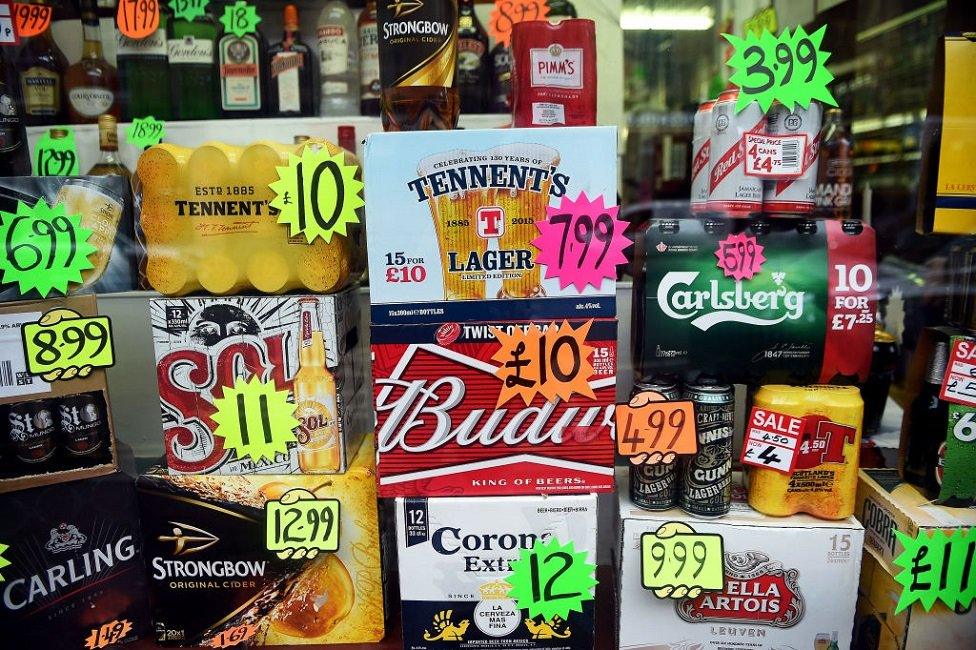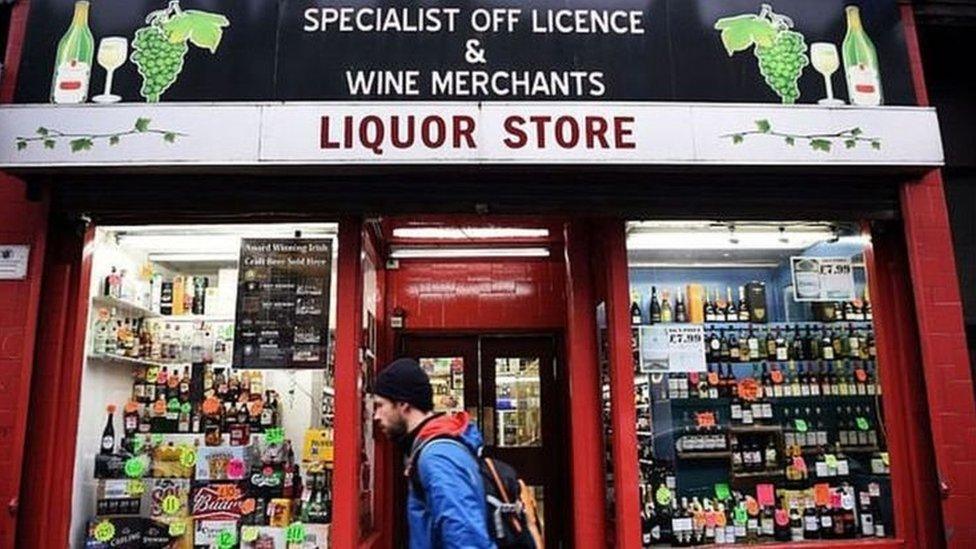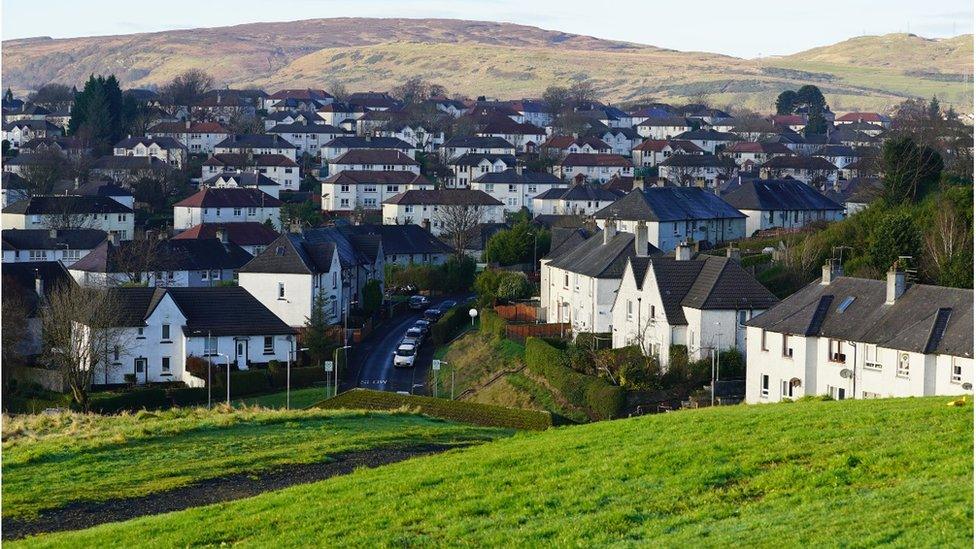Scottish alcohol sales drop to lowest level in 26 years
- Published

A minimum price for alcohol was implemented in May 2018
The amount of alcohol sold per person in Scotland last year fell to its the lowest level for 26 years.
Public Health Scotland figures show 9.4 litres of pure alcohol were sold per adult in 2020, the equivalent of each adult in the country drinking 18 units a week.
It is the third year in a row that the level has fallen and the largest drop on record.
However, the figure was still higher than in England and Wales.
The amount of pure alcohol sold per person north of the border was 6% higher, although this was the smallest difference between the nations recorded since 1994.
Alcohol-related deaths
The report, which monitored the impact of alcohol policy, found almost a quarter (24%) of all adults reported exceeding the safe weekly drinking guideline of 14 units a week in 2019.
But this was down from just over a third (34%) in 2003.
The report also revealed that 1,020 deaths were described as being "wholly attributable to alcohol" in 2019 - an average of 20 people per week.
Over the course of 2019-20, a total of 23,685 people were admitted to hospital with an alcohol-related diagnosis, with some requiring more than one stay in hospital.
Deprivation was linked to drinking-related illness, with the rates for both alcohol-related hospital stays and deaths eight times higher in the most deprived parts of Scotland compared to the least deprived areas.
A total of 42.5 million litres of pure alcohol were sold in Scotland in 2020, the report revealed - with sprits and wine accounting for 31% of sales each, beer accounting for 27% and cider 6%.
With the coronavirus pandemic forcing bars and restaurants to either close or operate under restrictions for much of last year, 90% of alcohol was bought in supermarkets and other stores, up from 73% in 2019.

A quarter of people still drink more than the recommended low-risk weekly guideline
Dr Elizabeth Richardson, public health intelligence adviser at Public Health Scotland, said the pandemic was probably a factor in the figures.
"We have previously shown that per-adult sales were lower overall between March and July last year, during the first national lockdown, and it's likely that the pandemic and associated restrictions have contributed to the lower alcohol consumption we see across the Scottish population in 2020," she said.
"Despite these trends, the most recent survey data show that nearly a quarter of people still drink more than the recommended low-risk weekly guideline. Among people exceeding the guideline, it is those in the lowest income group who are likely to consume the most."
'Having the intended effect'
She added: "An average of 20 people per week die as a result of their alcohol consumption, and whilst this latest figure represents the lowest rate since 2012, again it is those in the most deprived areas that are more likely to be hospitalised or die because of an alcohol-related harm. Like all harm caused by alcohol, this is preventable."
Alison Douglas, chief executive of Alcohol Focus Scotland, said "We're really pleased to see that as a nation we are drinking less for the third year running and that alcohol consumption is at a 25-year low - this is a good indication that minimum unit pricing is having the intended effect.
"Although the restrictions on pubs and restaurants for much of 2020 will have affected consumption across the UK, it is notable that the reduction in alcohol purchases in Scotland is greater than in England and Wales.
"But given nearly a quarter of Scots are still regularly drinking over the chief medical officers' low-risk drinking guidelines, we can't afford to take our eye off the ball where preventing alcohol harm is concerned."
'Dramatic impact'
She called on the Scottish government to raise the minimum price for alcohol from the current level of 50p a unit to 65p, saying this will "increase the positive benefits of the policy by reducing consumption, saving more lives and preventing a new generation from developing an unhealthy relationship with alcohol".
Scotland's Minister for Public Health, Maree Todd said she was more convinced than ever that minimum unit pricing was one of the main drivers in reducing the harm caused by over consumption of alcohol.
She said: "Clearly Covid-19 and the associated restrictions have had a dramatic impact on the hospitality trade, but these figures demonstrate that the restrictions in place did not simply translate into an increase in the total amount of alcohol being consumed. In fact, the opposite is the case.
"We have already seen that alcohol sales were falling since the introduction of our world-leading Minimum Unit Pricing policy in 2018.
"We know that it will take longer for the full impact of reduced consumption to feed through into health-related statistics, but I am more convinced than ever that MUP is one of the main drivers in reducing alcohol harms."
Related topics
- Published29 May 2021

- Published11 December 2020
